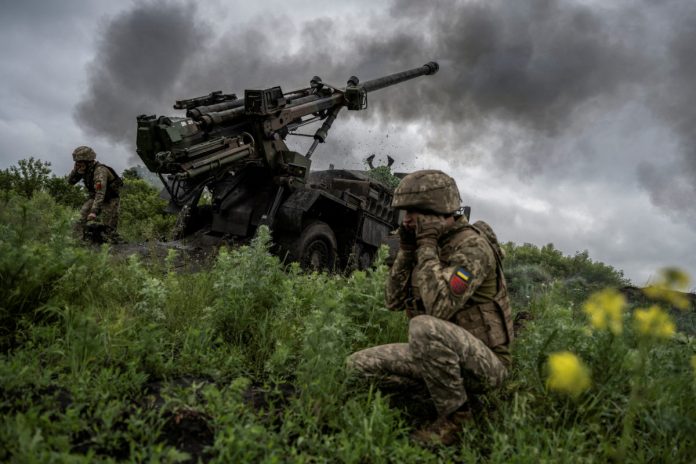Ukraine has encountered minefields and well-entrenched Russian forces in the last months of its troop advance. Kyiv has also faced tactics of surrendering positions before striking back.
The essence of the problem is reflected in Monday’s statements, with Russian forces claiming an attack on the front line in the Zaporizhzhia region, while Ukrainian forces reported of “repelling the attacks.”
Military experts say that instead of holding the line of trenches at all costs in the face of a Ukrainian attack, Russian commanders have employed a long-standing military tactic known as “elastic defence.”
The tactic involves Russian soldiers withdrawing to a second line of defence, encouraging the Ukrainians to advance, and then striking back when the enemy is vulnerable, either while moving across open terrain or while in recently abandoned Russian positions.
The aim of the tactic is to prevent the Ukrainians from gaining a foothold in new positions, as recently demonstrated by Ukrainian troops in the village of Robotyne in the south.
Ben Barry, a senior fellow for land war studies at the International Institute for Strategic Studies:
The defender gives ground while inflicting as heavy casualties as they can on the attackers with a view to being able to set the attackers up for a decisive counter-attack.
In addition to Russian tactics, Ukrainian officials and military experts also cite Moscow’s use of dense minefields, a network of trenches and tank barriers, as well as the West’s reluctance to supply modern fighter jets and longer-range weapons at the start of the war as factors preventing a quick offensive.
Barry notes that elastic defence was already used by the Soviet Union during the 1943 defeat of Germany at the Battle of Kursk. The Institute for the Study of War, a Washington-based think tank, pointed to signs of similar tactics in the Robotyne area taken by Ukrainian forces in late August.
Michael Kofman, a senior fellow at the Carnegie Endowment, has noted that if Moscow’s forces start retreating more than a few hundred yards at a time and Ukrainian forces gain enough momentum for a massive offensive, Russia’s defensive strategy will begin to falter.
One of the biggest things that remains in question is whether or not the Ukrainian military will be able to achieve a breakthrough.
